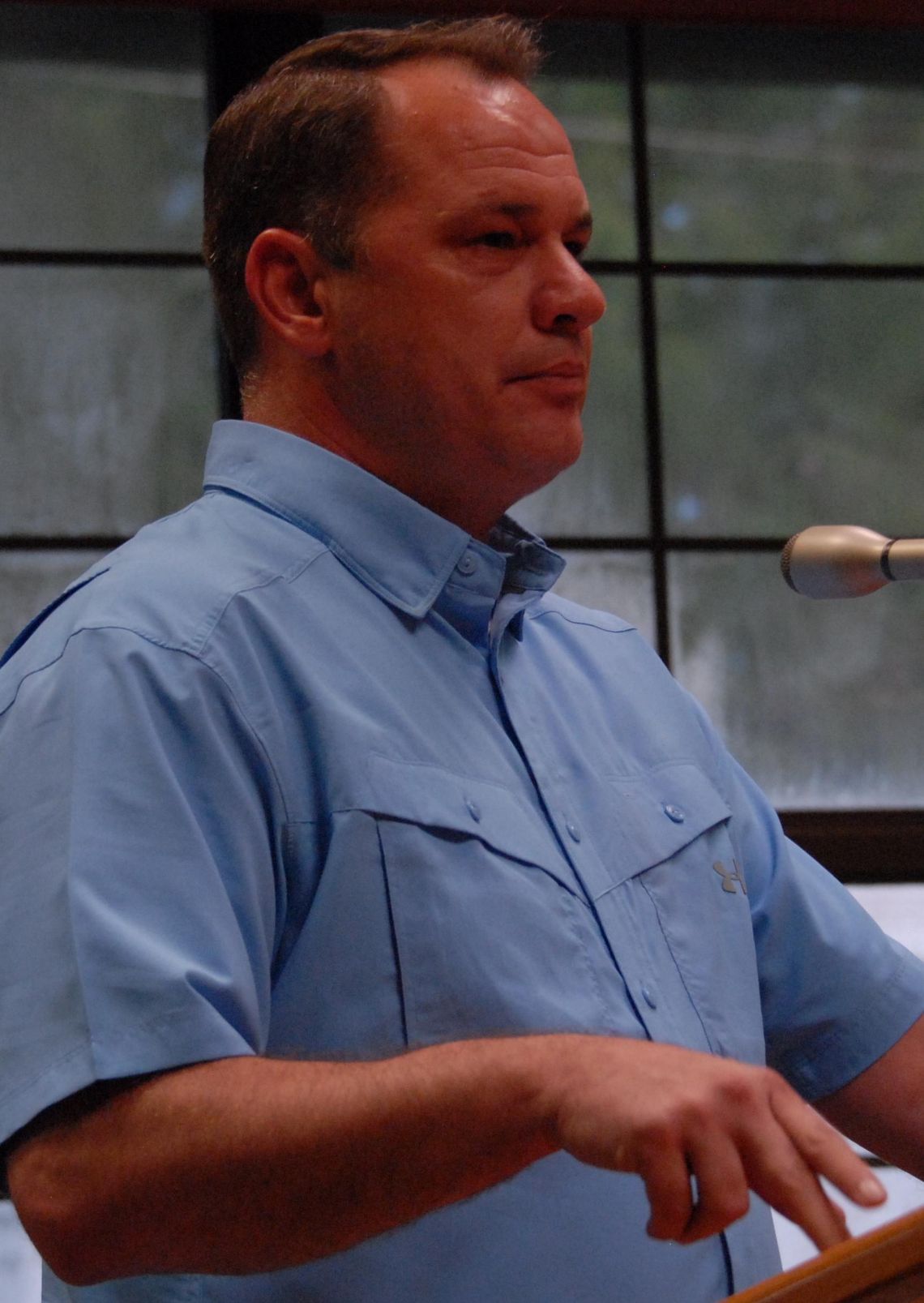
Former Main Street Association president Blake Douet appeared before the St. Martinville City Council on Monday, Oct. 20, and he wasn’t happy.
Douet expressed his anger about an attempt by utility workers to cut off his electricity over a $25 late fee. “I owned a business here for 30 years,” he said. “I was never late on my bills. I’ve put in thousands of hours as a volunteer for this city. Nobody should ever be disconnected for just a late fee, and all I can say is you are lucky I was home.”
Douet owned an appliance repair business on North Main Street. He said he was unaware that he owed the late fee
that resulted in the disconnect order.
After making it clear he was not blaming any city employees, he continued, “I don’t want this to happen to anyone else. I received no notification at all. This is not the way business should be done in a small town. If this ever happens again I’ll be back here with an attorney.”
Douet’s feelings did not fall on deaf ears. Council members generally voiced agreement that current practices are not fair. Council man Craig Prosper said unpaid late fees should not be sufficient to cause disconnections.
“This is one of the reasons people live in small towns,” he said. “You don’t expect to get treated this way. We went from one extreme to the other with this cut-off policy.”
Mayor Melinda Mit-chell’s recently-revealed delinquency in paying her own home utility bills was brought up repeatedly. Her utility bill has not been up to date since she took office, with never a late fee or threat of disconnection.
But in the case of city officials, state law comes into play.
City attorney Allan Durand explained, as he has before, that state law requires that all city officials pay their bills on time or risk removal from office by the governor. Councilman Mike Fuselier said the mayor’s delinquency would appear as a finding on the coming audit report.
Mitchell responded, “If y’all used some of that energy you put against me into economic development, we’d be on top of the world.”
Chief Administrative Officer Avis Gutekunst defended the actions of utility department employees, saying, “None of us here get any training. Everybody has been applying the policies that are in effect. That’s all they can do.”
With 3,300 customers, the utility department has been issuing 150 to 170 cut-off orders per month.
Durand suggested that if the existing policy of not initiating a disconnect for debts under $20 was raised to $30, that might eliminate most disconnect orders.
Prosper requested that the utility department submit its current policies to the council in writing so a detailed analysis can be done and needed changes proposed.
Travel Plans Nixed The council also discussed out-of-state travel expenses.
The mayor and councilman Edmond Joseph were planning to attend the annual National League of Cities convention in San Antonio next month, at a cost to the city of more than $1,000.
Fuselier held up a piece of paper on which he had written the figure $92,500. “This is how much this administration’s mismanagement has cost the city,” he said.
“How much of that was from the open-ended contract you approved for Faulk and Winkler?” Mitchell countered.
The accounting firm was retained to restore the city’s financial accounts to order following the six-month tenure of Shedrick Berard as chief administrator.
“We had no choice,” Prosper said. Fuselier added, “Who recommended that we do that? Burton Colder, your choice for auditor. And who made a mess of things? Your choice for administrator.”
In a 3-2 vote, with Joseph and Juma Johnson opposed, the council approved a motion by Prosper to require that any out-of-state travel be approved by the council.
“This is third grade stuff,” Prosper said. “There is plenty to learn right here, and no reason to throw away $1,000 when our finances are in the shape they are in now.”

